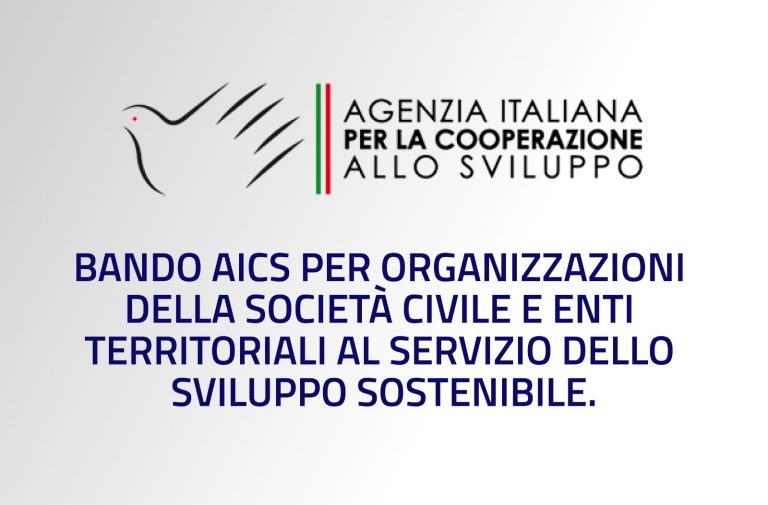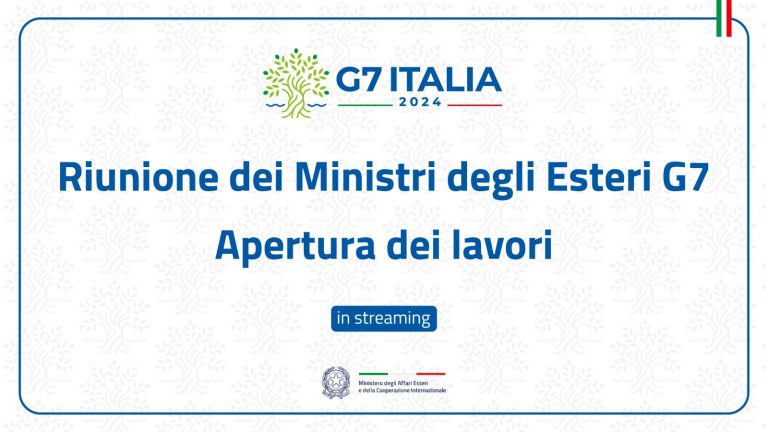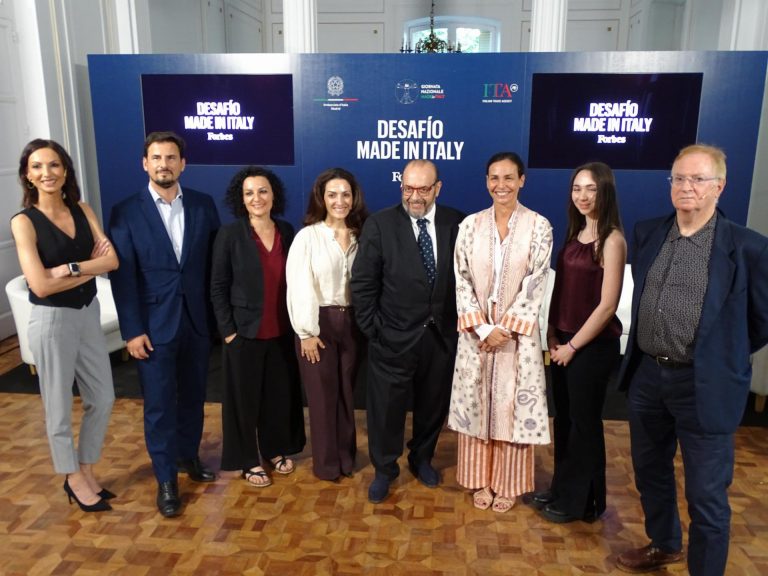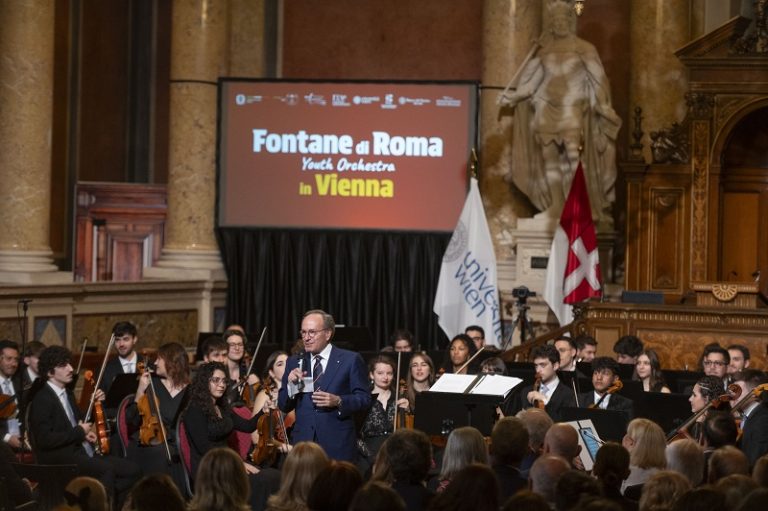Europe, the crisis and Italy’s initiatives were the focus of an interview with Minister for Foreign Affairs di Sant’Agata Terzi for [daily newspaper] l’Unità.
Mr. Minister, Italy has suffered from a deficit of credibility in international spheres recently. How can we regain a leading role in Europe?
«We have had a problem of credibility mainly in connection with the economic/financial emergency. A problem that we are in the process of overcoming, thanks to the Italian government’s courageous and timely intervention over the past two months. I am in continuous contact with my European colleagues and have received the unanimous appreciation for our government’s ability to enact such demanding economic measures within such a short timeframe. Proof of how effective this has been lies in Italy’s return to the table with its main European partners. We are no longer the eurozone’s problem, but part of its solution. Certainly, the problems are anything but resolved. The main challenge, associated with the debt, is growth, which we are confronting head-on at national level in fields such as liberalisation. That said, it is obvious that the problem is a broader-based one, as we have seen with the recent downgrade of nine European countries, and more broadly regards the relationship between global finance and the soundness of European governance – a relationship that needs balancing from both ends».
How?
«With more effective market regulation and of the role of rating agencies, and with a leap in quality in eurozone governance, which cannot be limited to budgetary discipline but must also invest in mechanisms of solidarity and in growth factors. Hence the importance of negotiating a fiscal compact to which the Italian government can today contribute from a credible position».
If I may insist: talk of Europe by now consists of an economics vocabulary only: bonds, spread – what about foreign policy?
«It is true that this is a mistake; not least because a country’s overall rating ideally includes its external dimension, what it does out in the world, the responsibility it assumes in ensuring global security. Moreover, the burden of security assumed by countries with international commitments – and Italy is among these – have an impact on the budgets of the other States. Moreover, it is obvious that Europe is not, nor can it be, merely a currency or a tax system. It is a world class political and economic actor, with a clear identity that is well-defined by shared democratic rules and values. And if it wants to be competitive on the global scenario it has to be endowed with a more effective foreign policy. We have made major advances in recent years; we have deployed 12 military and civil missions in various corners of the world; we have adopted new instruments with the Lisbon Treaty, among these a shared diplomatic service; in December we decided on the creation of a European headquarters for the planning of missions in the Horn of Africa. Is that enough? Certainly, not. We need to outline our priorities in this rapidly changing world more clearly. I therefore have suggested the launch of a reflection on an updated European security strategy. The last dates back to 2008 – before the Lisbon Treaty, the economic downturn and the Arab spring. There also needs to be a greater effort at pooling common security resources and assets in response to a need to rein in budgets, and, above all, the greater political will of Member States to abandon nationalistic protectionism and foreground European needs and interests. Especially in light of emerging powers such as China, India and so forth, the Union must pull together».
Can you give a breakdown of your efforts in the European framework?
«I have been underpinning Premier Monti’s efforts through a series of bilateral meetings with my counterparts. I recently met in Rome with Westerwelle and Carl Bildt, and with Juppé in Paris a few days ago, and I will be in London for a meeting with Hague on 26 January, who I have already had occasion to meet in the margins of the Council of Foreign Ministers. I am obviously maintaining contact with the Danish duty Presidency. The goal is to strengthen our voice in the EU in defence of our national interests. To make a couple of examples: negotiations on the Union’s financial prospects for the period 2014-2020. Italy is a net contributor and has an obvious interest, along with other net contributor countries that include France, Germany and the UK, in seeing its deficit reduced and its next budget balanced. Also in regard to the EU’s next budget, is the need to ensure the countries of the Mediterranean sufficient resources to sustain the democratic transitions under way. Another theme is enlargement, particularly to the countries of the Western Balkans. It is in Italy’s national interests that these nations, our friends and neighbours, become EU members. We are among their top economic partners and are convinced that, if they were fully integrated into Europe, that these countries would become producers of stability, for the good of everyone. For that reason, my Swedish colleague Bildt and I have asked that the question of Serbia be added to the agenda of the next meeting of the EU foreign ministers. We will be intensifying our diplomatic efforts to reach a decision at the March European Council on granting Serbia candidate status. Another of Italy’s initiatives in Europe concerns the rights of religious, particularly Christian, minorities. We recently signed an agreement between the foreign ministry and the City of Rome on the creation of an observatory for religious and Christian minorities that will make use of our diplomatic network and work in tandem with the European Union task force».
Military expenses have been a hot topic of late. But shouldn’t a European defence model be the result of foreign policy?
«I believe this already exists in practice, and is a process that has been stepped up over recent years, with foreign commitments in the Balkans, Afghanistan and Lebanon, where we have proven the existing continuity, interaction and complementarity between military and diplomatic instruments. There is also continuous coordination between the Ministries of the Defence and Foreign Affairs – which bring us back, full circle, to Europe. If we want a more internationally proactive Europe then the defence models of the various EU countries must all be based as closely as possible on the European security strategy, since security and defence are an indispensable aspect of foreign policy.».
Speaking of hot topics, there has been a lot of talk about the case of Consul Marco Vattani, brought out by l’Unità, and some are concerned the affair is going to be buried. Can you bring us up to date?
«How so, buried? Look, we were informed of the affair involving the Consul on 29 December, and on my instructions a few days later, on 4 January, the foreign ministry administration launched disciplinary procedures. A formal complaint was lodged against him, to which he will have to respond. The question will then pass to the Disciplinary Committee, according to procedures and timeframes that are the same for everyone and which are established by the State. As everything we do at the foreign ministry, the affair will be handled with the maximum rigour and in complete compliance with protocol».





